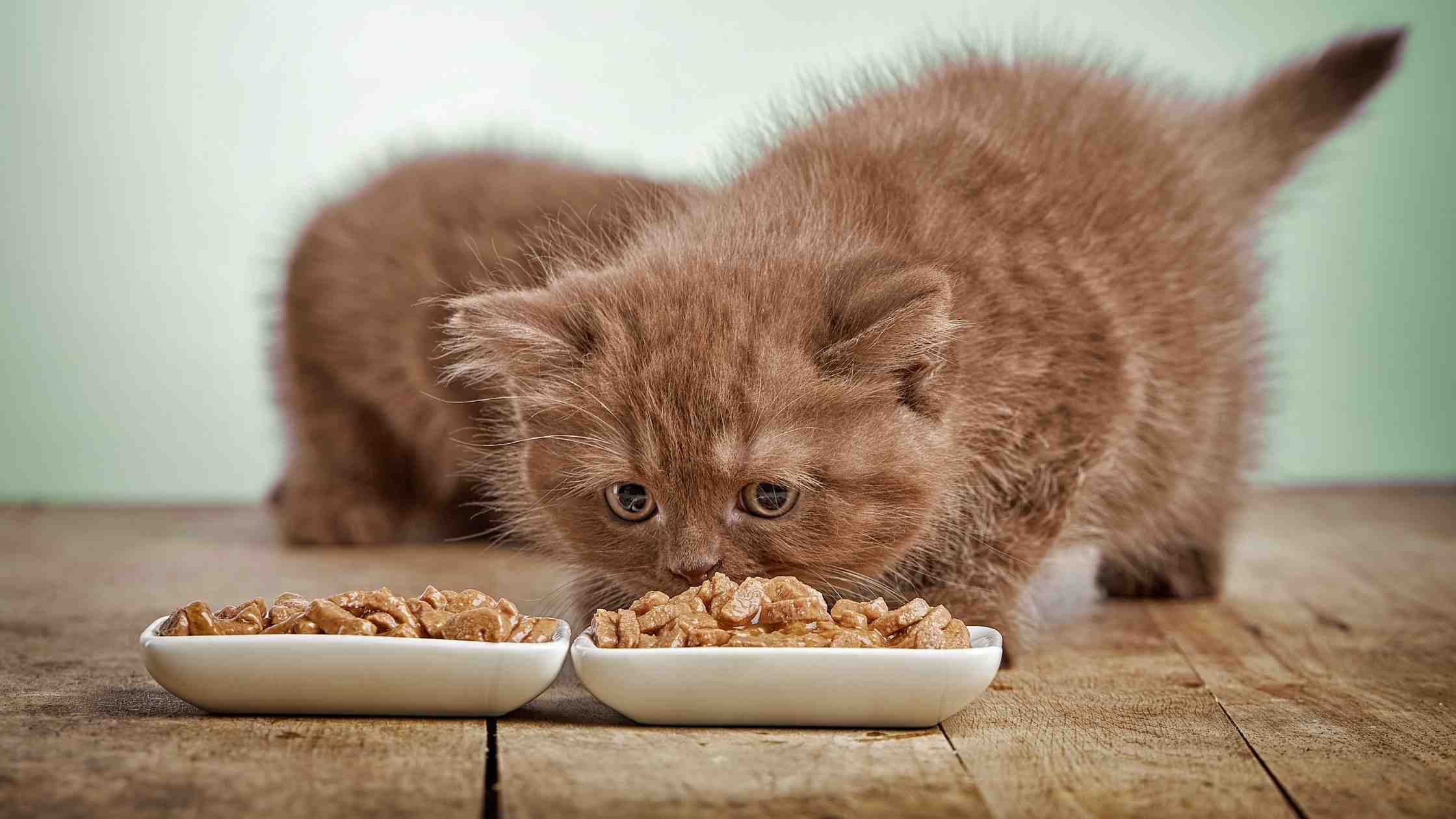The major Kitten Food Vs Cat Food factor is that kitten food has a higher calorie content than adult cat food. Kittens are developing and expend a lot of energy when playing which is the reason they need more protein, and calories than cats.
Cats and kittens require particular nutrients, such as protein, fat, vitamins, and minerals, which may be obtained from a variety of sources, including meat, fish, and plant-based meals.
Junior cat food is somewhat lower in calories than kitten food. Junior cats are still developing and expend less energy while they play.
Cat food producers provide different types of food depending on the typical calorie needs of cats of various ages. The majority of the cats we have in our homes are not typical.
Many cats can self-regulate their food intake if they are fed freely from a young age, but some cats will eat as long as there is food in their bowl, necessitating a rigorous kitten feeding regimen with food consumption limits.
All Life Stages Cat Food Vs Kitten Food

Adult cat food has fewer calories than cat food for kittens and junior cats. Adult cats use less energy since they do not play as much and are fully developed (this is the type closest to all stages of food, the difference in energy content is only minor).
Senior cat food often contains only the calories required to maintain the cat’s weight, as well as fewer minerals and more nutritional fiber. As a result, you should avoid letting an older cat consume your kitten’s food, otherwise, your adult cat may gain weight.
If your kitten consumes the adult cat’s food, he or she may consume fewer calories, but this is not a serious issue because the kitten will just eat more frequently.
When to Start Transition Kitten to Cat Food
Kittens have a greater protein need than adults and calcium and phosphorus levels that are different from adults, allowing them to build strong bones.
Unlike adult cats, kittens have trouble digesting carbs. Kittens also require more calories per kilogram of body weight, which progressively decreases as they get older.
DHA, a fatty acid essential for brain development and retinal function in kittens, is also required. When your kitten reaches the age of twelve months, gently transfer them from kitten to adult food.
This should be done over a seven-day period to gradually introduce the new meal and avoid stomach discomfort as a result of the diet change.
Start by replacing roughly a sixth of the existing kitten food with new adult food on the first day. Increase this progressively over the next few days, until all kitten food has been replaced with adult food by day seven.
What Happens if Kitten Eats Cat Food
It depends on their age. Kittens can start eating solid food at the age of three weeks, but if they have a mother, they should continue to nurse.
Get some KMR kitten milk replacer and a bottle if they’re under three weeks old and start feeding them.
It wouldn’t be concerned if it was older than three weeks. Canned kitten food, not adult food, would be the greatest choice for them. Kittens require at least double the number of calories that adults do.
Can my Kitten Eat Normal Cat Food?

First and foremost, kittens should be fed kitten food. Especially when it comes to dry food. Regular cat food is too hard and big for kittens, who only have a few baby teeth and small throats.
Chow for kittens is easy to chew. Kitten wet food is designed for a kitten’s developing body, whereas cat food is designed for adult cats. Please ensure that your kittens are well fed. It is critical and required. So, wet food plays a better role than dry cat food in kittens at an early age.
Kitten Food Vs Senior Cat Food
Kitten food has more calories and vital nutrients than a developing kitten needs, whereas senior cat foods contain fewer calories, fat, and protein.
Senior cats can eat kitten food, especially if they need to gain weight, but kittens should not eat cat food.
Kitten meals are up to 50% more expensive in both wet and dry food alternatives, whilst Cat Food is the more cost-effective option.
Read Also – Kindfull Cat Food Review
When to Switch from Kitten to Cat Food?
Cat food has a greater calorie content, but it also provides certain essential nutrients for a developing kitten. Other than ingesting the extra calories, eating kitten food won’t damage an adult cat, but a kitten shouldn’t consume food intended for adult cats.
The majority of cats achieve adulthood around the same period – about 12 months of age.
As a result, you should feed your feline buddy kitten food until they are one year old, after which you should gradually transition them to adult cat food.
Is Senior Cat Food OK for Younger Cats?
Yes, but they will very certainly become overweight in the end. Kitten food is high in nutrients since kittens can only consume little amounts at a time and require energy to thrive.
Cat food contains a lot of calories, protein, and fat. As a result, if an adult cat eats the recommended amount of food, he or she will consume too many calories and become overweight.
Mama cats that are pregnant or nursing are an exception. They require the additional nutrients, thus it is really advised that they be weaned onto kitten food from the time they begin mating until their kittens are weaned off of their mother’s milk.

Leave a Reply